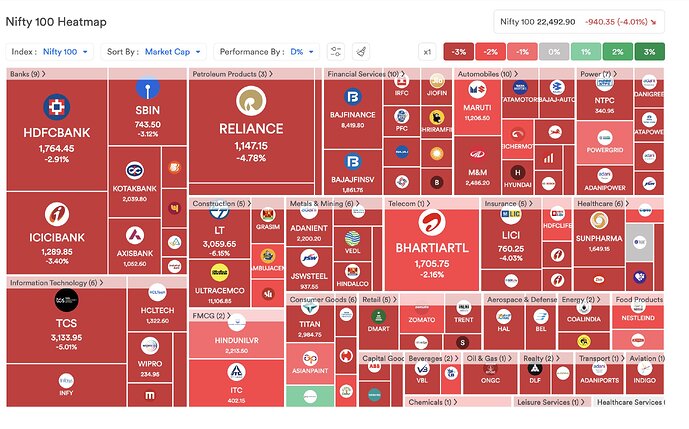A wave of deep red swept across global equity markets today, with many major indices falling sharply:
Hong Kong: -13.2%
Taiwan: -9.7%
Japan: -8.3%
Singapore: -7.4%
China: -7.3%
Italy: -6.9%
Sweden: -6.2%
Netherlands: -6.1%
Australia: -6.1%
France: -6%
Spain: -5.7%
Germany: -5.6%
Switzerland: -5.5%
UK: -4.6%
Philippines: -4.3%
Malaysia: -4%
India: -3.8%
Russia: -3.1%
Turkey: -2.5%
Saudi Arabia: +0.5%
Is a Recession Looming?
Markets don’t fall like this without sending a signal. While this doesn’t automatically mean a global recession is guaranteed, the breadth and depth of the decline suggests:
- Investor confidence is rapidly deteriorating
- Flight to safety is intensifying (expect movement into gold, bonds, and USD)
- Demand destruction may be more severe than anticipated, especially in consumer-led economies
If trade tensions escalate and corporate profits shrink further, the odds of a global slowdown or mild recession in the next 6–12 months rise sharply.
![]() Do you think tariffs help or hurt economies in today’s globalized world?
Do you think tariffs help or hurt economies in today’s globalized world?
